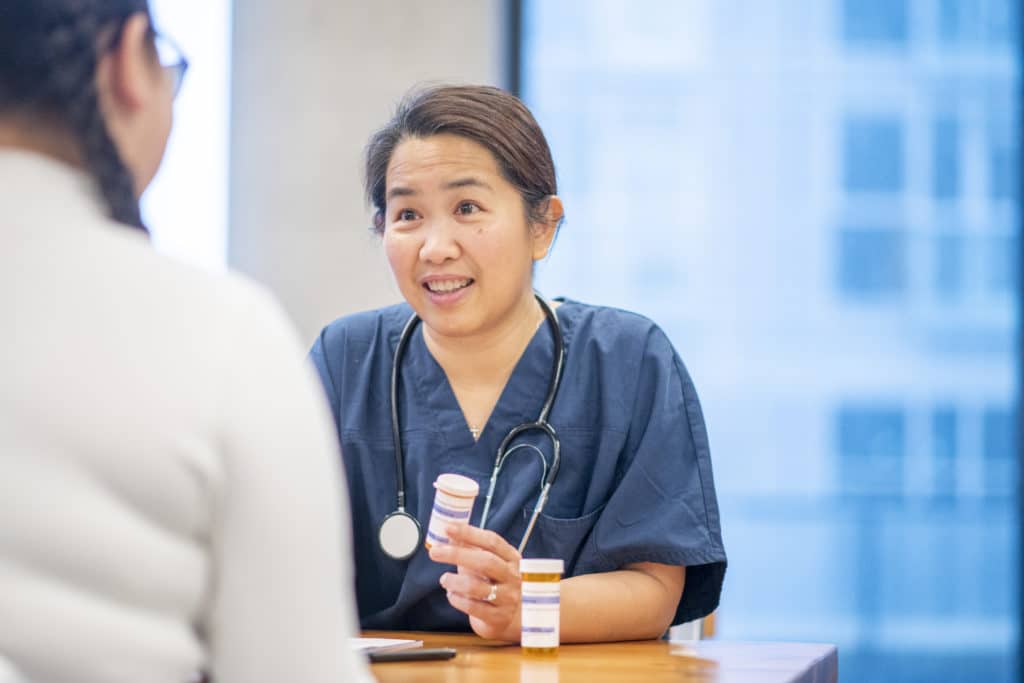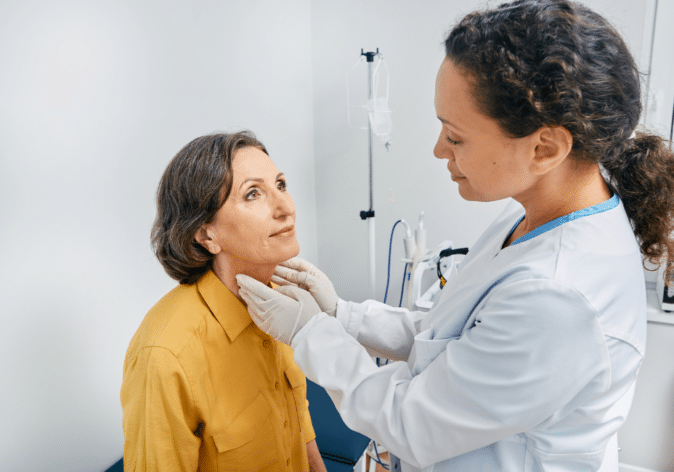The Signs And Symptoms Of Breast Cancer
It can be an incredibly frightening experience to find a lump on your breast that you have never noticed before. It is the most discussed symptom of breast cancer.
But do you know what you should do after finding a lump? Do you know what other symptoms you should be on the lookout for? Does a lump necessarily mean you have breast cancer? And is a monthly self-check of our breasts really necessary?
What Do You Do When You Find A Breast Abnormality?
Breast Cancer Trials board member and Medical Oncologist Associate Professor Nicholas Wilcken said some breast cancers show no symptoms to begin with, but it’s important not to panic if you do find a breast abnormality.
“I think the first thing to say about symptoms of breast cancer is often there are very few or there aren’t any” said Associate Professor Wilken.
“Second thing to say is that breast cancer is not an emergency. If you think there is something abnormal about your breasts, you don’t want to sit around watching that for six to 12 months, but nor do you have to panic and see the doctor in a week or two time. You can afford to wait three or four weeks and see is this really different? Is this really new? Is this really something happening?”
“In terms of what you might see, if you’re looking at yourself in the mirror with your hands on your head, you may see that there is some asymmetry, or some part of the breast pulled in. When I say asymmetry, it is quite common for one breast to be slightly bigger than the other, so I don’t mean that, but I mean some unevenness” he said.
“The second thing to look for is the nipples and in some women their nipples are already always withdrawn and, on both sides, and that’s fine, that’s totally ok. But if a nipple that used to be pointing out is now tugging in that’s probably not right. Again, wait for three or four weeks but that’s something to talk to the doctor about.”
“And the third thing is rash or red raised plaques on the skin is highly likely to be something completely benign. It’s just an allergy or something like that, but if that persists for three or four weeks that’s worth talking to the doctor about as well.”
Listen to the podcast
Associate Professor Nicolas Wilcken discusses the other symptoms of breast cancer, and what to do if you spot any of them.
Non-Visible Symptoms Of Breast Cancer
Professor Wilcken said there are also non-visible symptoms which women should be aware of.
“You naturally assume ‘if I’ve got cancer in my breast it’s going to hurt’. So, I’ll watch out for breast pain but in fact, breast cancers very uncommonly hurt and if you’ve got something causing breast pain, I’m not saying ignore it, wait and see and if it persists, see the doctor. But it’s probably going to turn out not to be breast cancer.”
He said if you have any of those symptoms, you should not panic.
“As I say, it’s something to take seriously, it’s potentially important but it’s not urgent. It’s always a good idea to wait three or four weeks. I think particularity if you’re a pre-menopausal woman and you’re having regular periods as you all know, breasts change through the cycle.”
“It’s better to wait for a month and see if whatever you think was wrong or you were starting to panic about, might just settle down on its own.”
Should You Self-Check?
Woman are often encouraged to self-check regularly, however Associate Professor Wilcken said this is a complicated discussion.
“The whole self-checking argument is complicated.”
“On the one hand you want to know what your breasts feel like if you’re having a menstrual cycle and you want to know how they change for the cycle, so you can recognise if something feels abnormal.”
“But in fact, interestingly, if you very carefully train women to examine their breast for abnormalities, what’s been shown in a clinical trial is that that actually doesn’t help. Because you get lots of women talking to lots of doctors, having lots of mammograms, and lots of biopsies and almost all of it is not breast cancer. So, you actually create more problems than you solve” he said.
“So, it’s this halfway thing of don’t completely ignore your breasts but don’t do a religious really careful examination. It’s a kind of once over, three times or four times a year.”
“If you see something different, you note it, you wait and you watch and if two or three weeks later it’s still the same, you see the doctor for a check-up.”
Support Us
Help us to change lives through breast cancer clinical trials research



